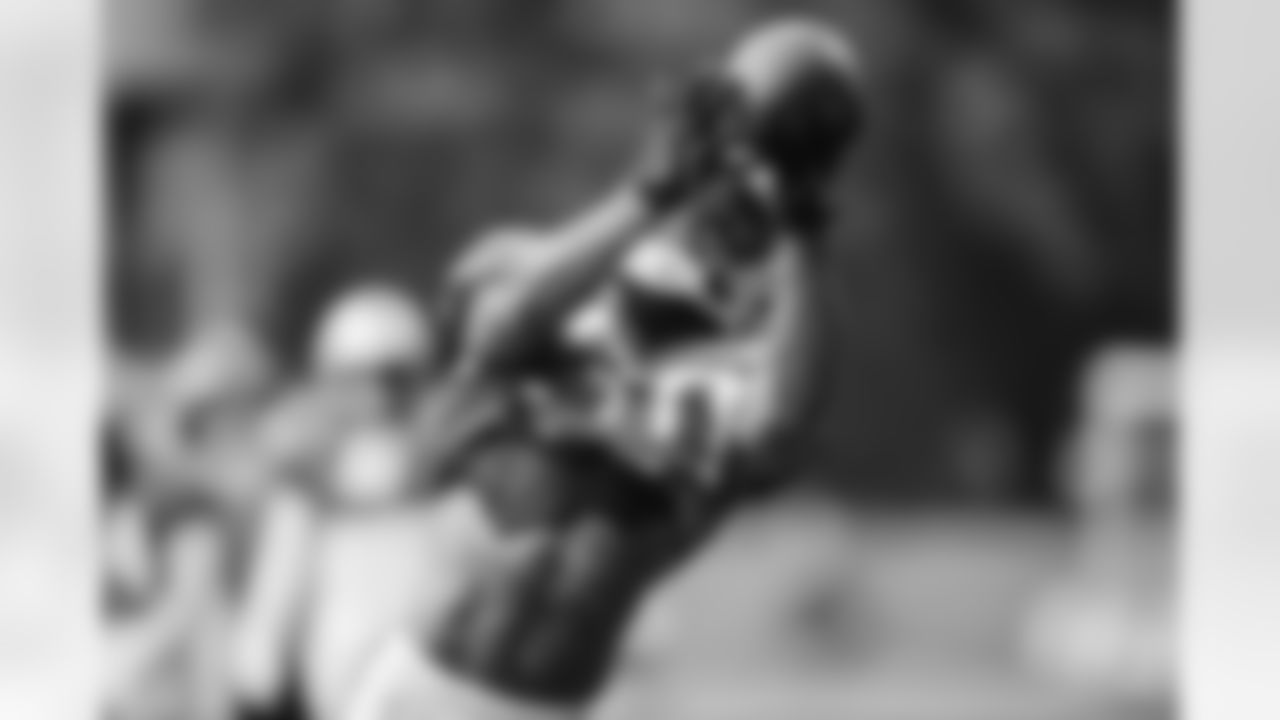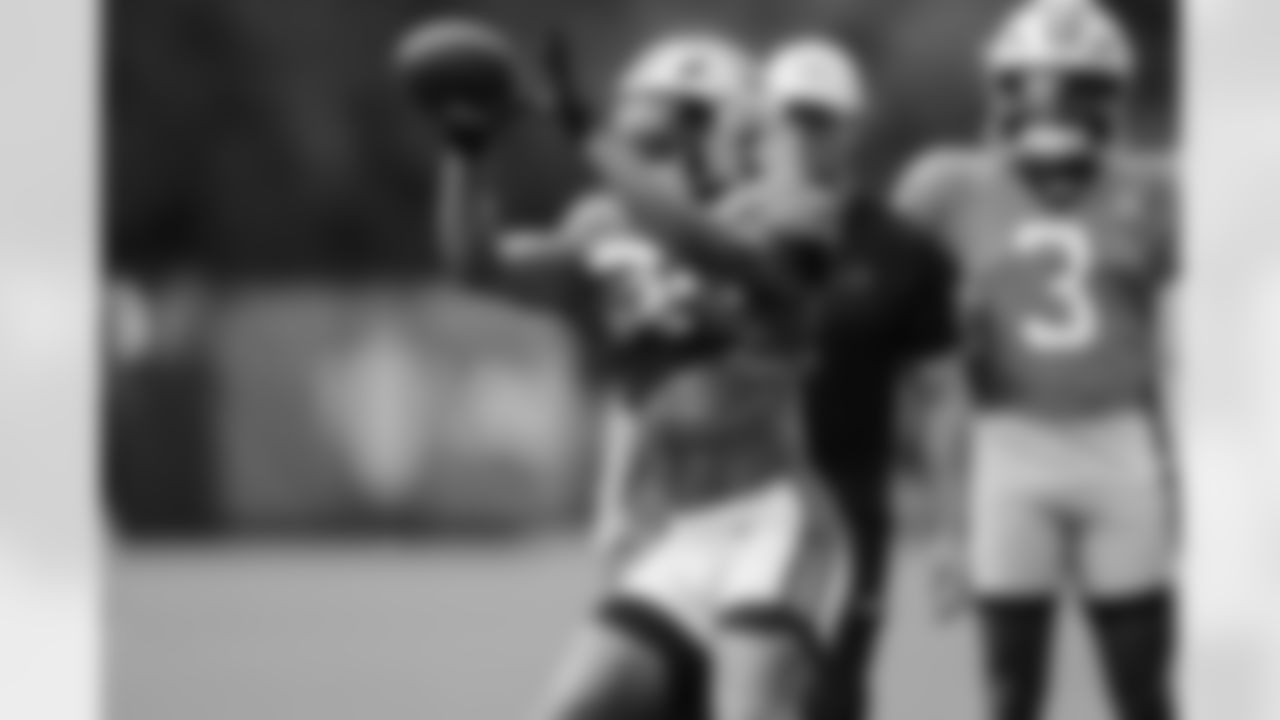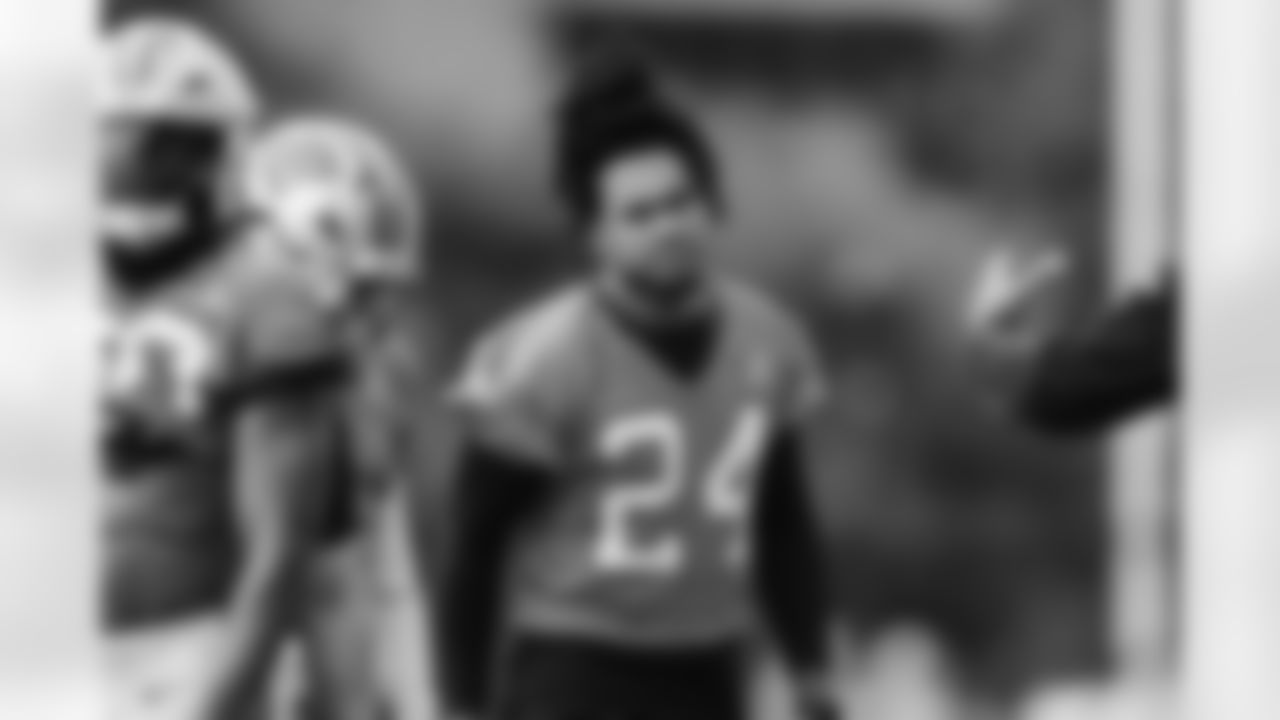CHARLOTTE — "In the defensive back's justice system, the people are represented by two separate, yet equally important groups: Their teammates, who investigate grievances, and Xavier Woods, who prosecutes the offenders. These are their stories."
Jaycee Horn raced down the sideline, on the hip of Diontae Johnson in their second of three faceoffs in one-on-ones. Horn had won the first, but Johnson seemed to have a step on him in the second. The ball sailed their way and Horn, working his 6-1, 200-pound frame, slipped just in front of Johnson's wingspan.
The fourth-year corner used his positioning to get both hands in front of the ball, knocking it away. As teammates cheered the textbook pass breakup, Horn looked at his hands in shock. It should have been an interception, he knew it, and he watched dollar bills fly out of his wallet.
"I think I'm down like $200 right now and we just started," Horn said with a shake of his head after practice. Except, wait, he still needed to add Sunday's drop. "You see how fast it builds? I'm down $300 in three days."
Let's back up and explain.
The defensive backs have a bit of a kangaroo court in place, a good-natured system of justice inside their meeting room which has an underlying point. It consists of leveeing fines for holding, pass interference calls, dropped interceptions and even letting the outside world know about the intricacies of the fine system in the first place, which is why safety Nick Scott immediately demanded to know who had pulled back the curtain. A journalist never reveals their sources, though.
"You have to in this case," Scott said. "Because unfortunately we're going to have to fine him for snitching."
Apparently, the first rule of DB Club is don't talk about DB Club.
A similar system has been attempted before but, according to Horn — who has been in the room for going on four seasons now — it has always been a bit of a house of cards. This offseason, consistency has been found, thanks in large part to the establishment of a governing body.
There is no mercy offered and no tax bracket that determines a fine relative to pay scale. "Oh no, everybody gets the same treatment, everybody gets the same," exclaimed rookie Chau Smith-Wade. "Don't matter if you're a rookie. Ninth year, 10th year, 12th. It don't matter."
Fines can be suggested by anyone, à la citizen's arrest, for litigation. At that point, there is an attempt, according to Scott, to hold civilized judicial hearings, determining whether or not the action in question is worthy of a fine. But, as Horn quickly corrected, it isn't a jury so much as, "a bunch of dudes yelling."
"It ain't really set up how it should be," he said. "Just a bunch of dudes yelling back and forth. Basically, replaying the play 1,000 times and then X making a final decision."
The X part – Xavier Woods – is crucial, as the veteran safety is the fulcrum upon which the scales of justice pivot. Your high school social studies teacher would assign an essay topic, asking whether the balance of powers in place better represents a republic or a democracy. Woods himself referred to it as the latter. But a democracy still needs a head of state, and that is a throne which Woods has naturally assumed.
He might as well wear a black robe and have a gavel.

"I'm the one who holds the money, the treasurer. It all comes to me," Woods revealed.
Knowing that the honorable Judge Woods presides, those in the room have worked to curry favor, at least as much as they can.
"X is really the head of it. He got a final say on a lot of this stuff," Horn explained, "Because sometimes the coaches, they watching it in the film room and they might try to say you dropped it. But if X don't see it as such, then you're good. So, I try to stay on his good side so I don't lose a lot of money."
Having a trusted elder like Woods is helpful, since his authority can even exceed coaches' in some cases. Separation of powers is good, and no one is above the law.
"We feel as though the coaches hold a little bit too much power, and so we have to incorporate them in the fine system because they're not perfect either," Scott shared.
"For example, if a coach makes a mistake on the personnel, sends the wrong guy out there, the guy that's sent out there is getting ripped on the field, he's probably going to have to take it to the jury and say, 'Hey, here's what happened. Coach put me out there. I wasn't supposed to be out there. I got in trouble.'"

To this point, Horn has only argued one successful reversal, and it wasn't even for himself. Presenting his case to the jury following Thursday night's preseason game against the New England Patriots, Horn argued that Jammie Robinson was in the right place for a pass breakup, but it would have been a near impossible interception to make.
"They were trying to fine him on that, and I was like, no, that ain't no fine," Horn, playing the role of public defender for a young teammate, said.
The pot is still doing just fine without Robinson's contribution though. And it will continue to build until the season is over. What happens with it then is still up for debate, but the prevailing wish is for it to be used for a unit-wide trip. Horn is angling for the Bahamas.
Until then though, the fine system will continue to serve its primary purpose, which is to keep these guys on point every day.
"It holds everybody accountable," Scott said. "It makes things interesting, and it's incentivizing for guys to make plays and not make mistakes."
View some of the best pictures from Sunday's training camp practice.

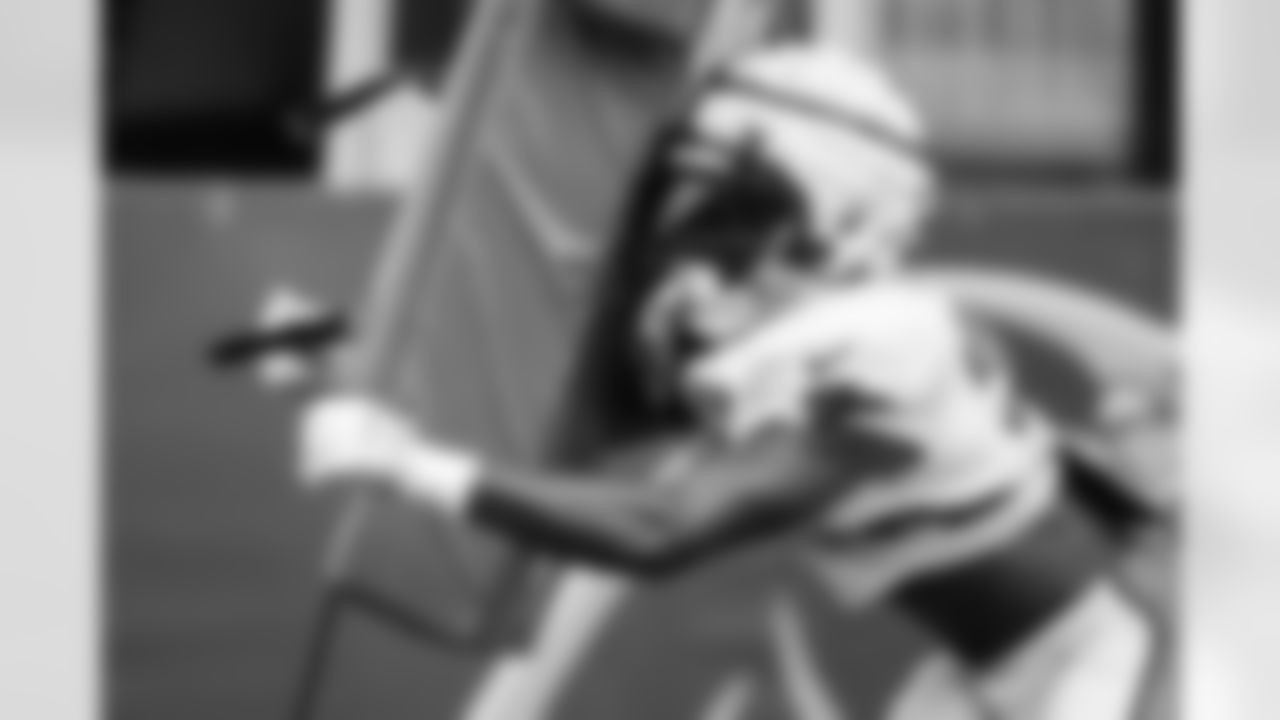
Nick Scott (21)
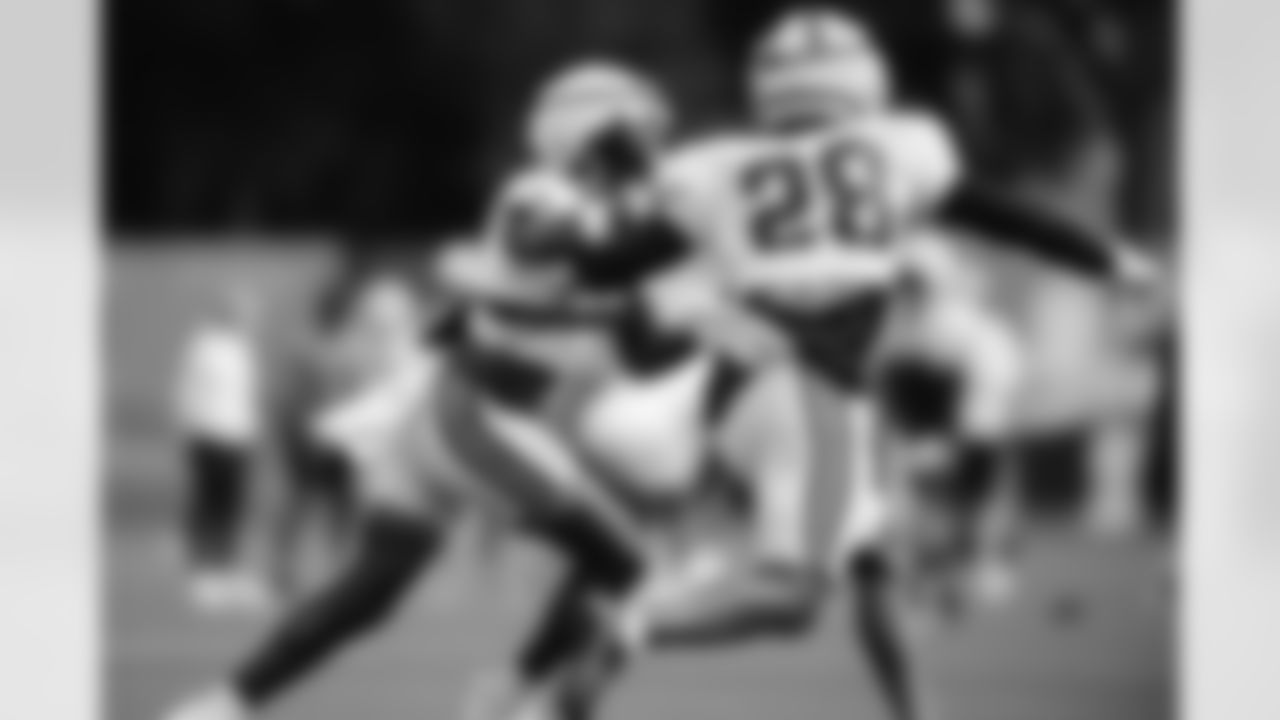
Nick Scott (21) Clayton Isbell (28)
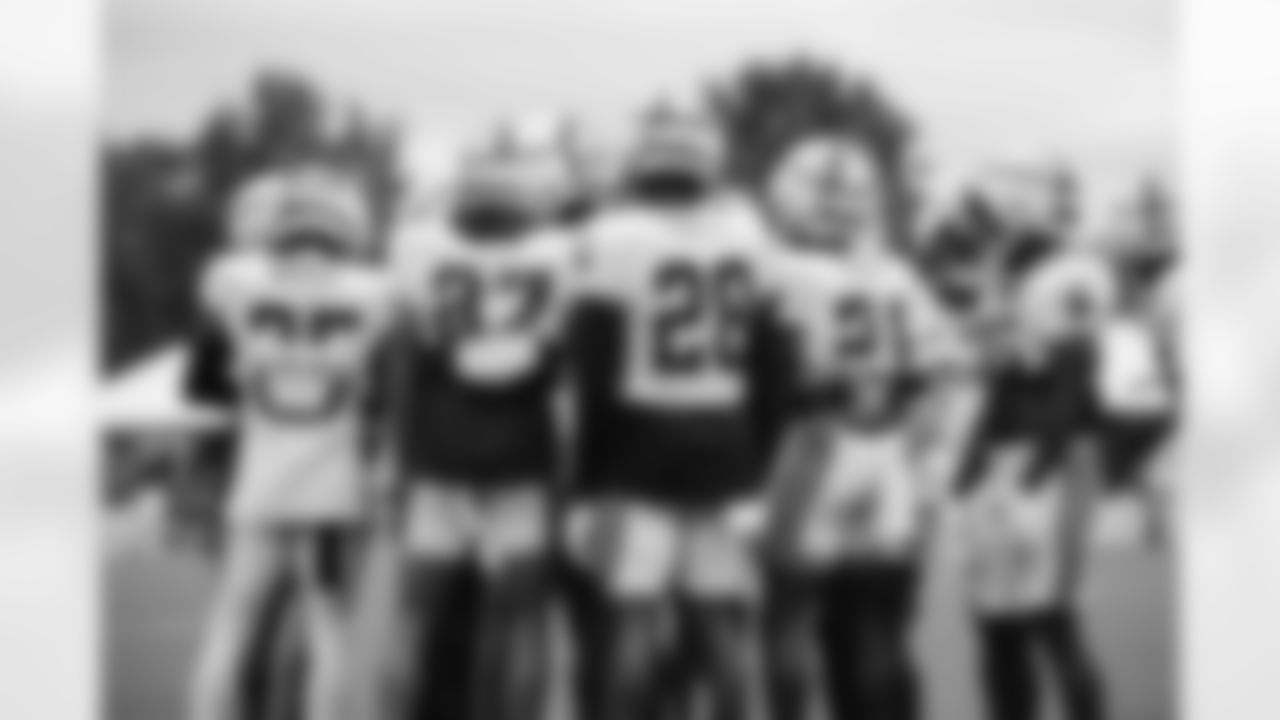

Nick Scott (21)

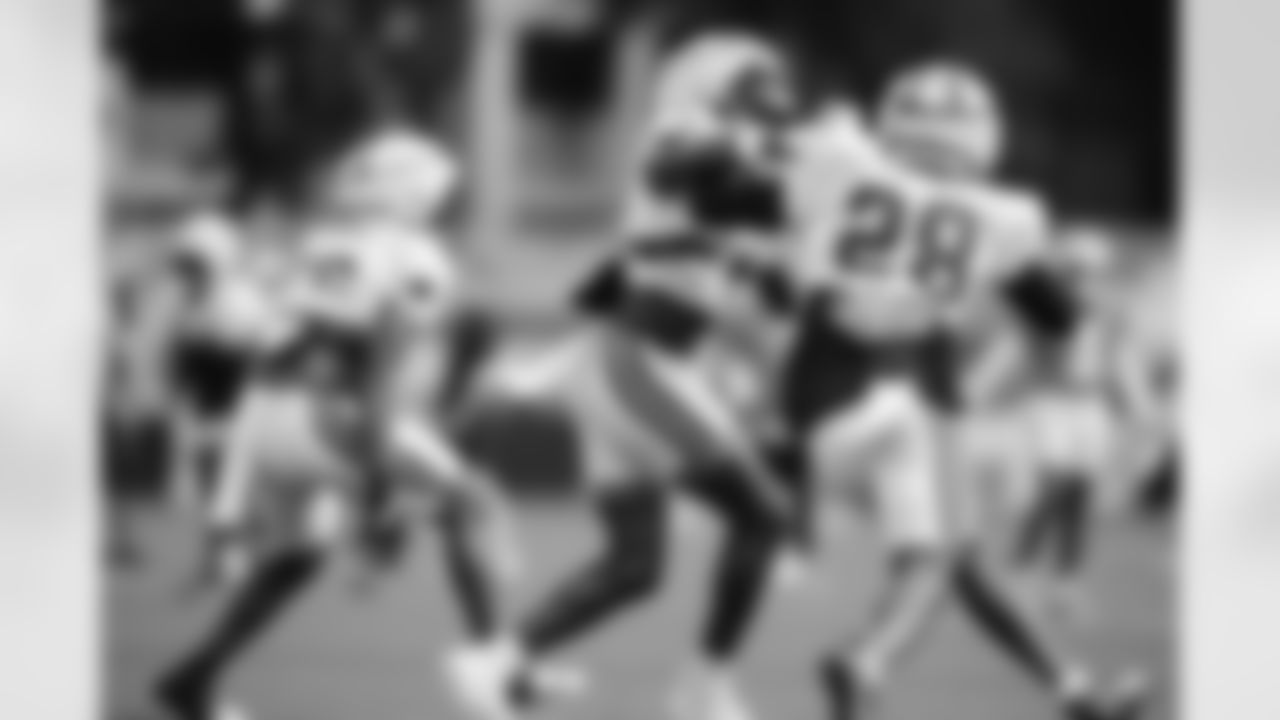
Nick Scott (21) Clayton Isbell (28)
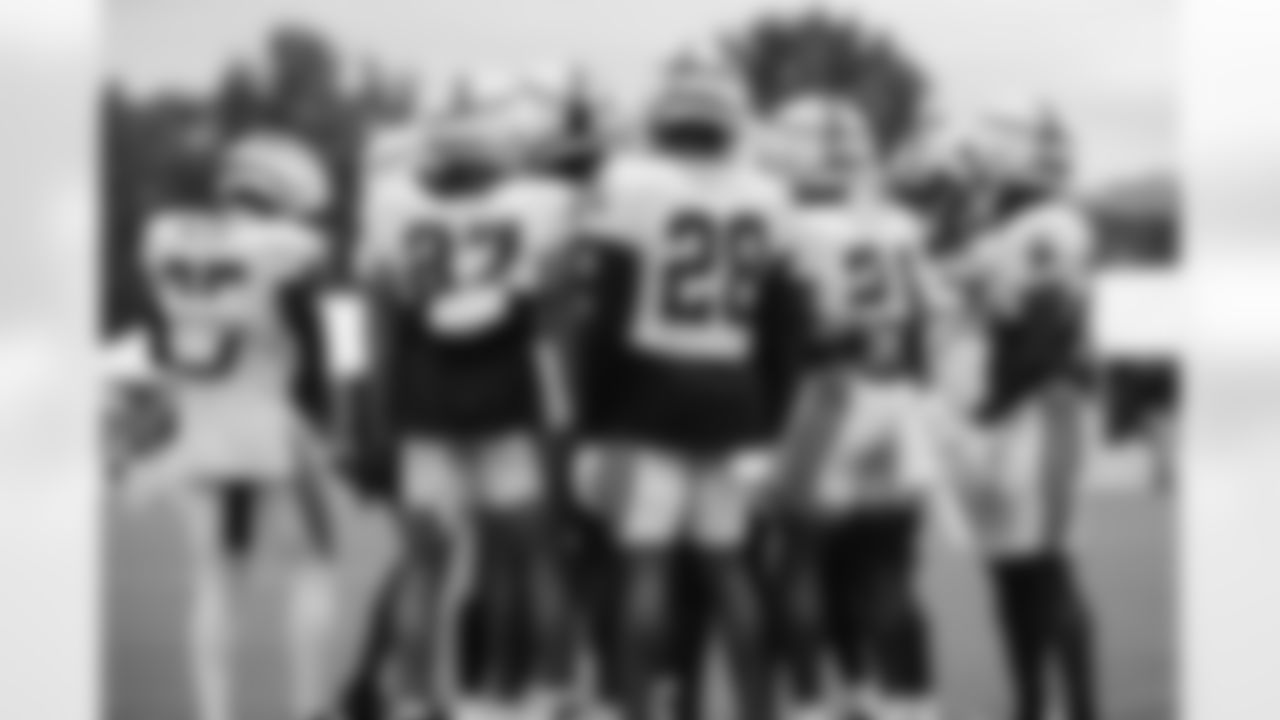
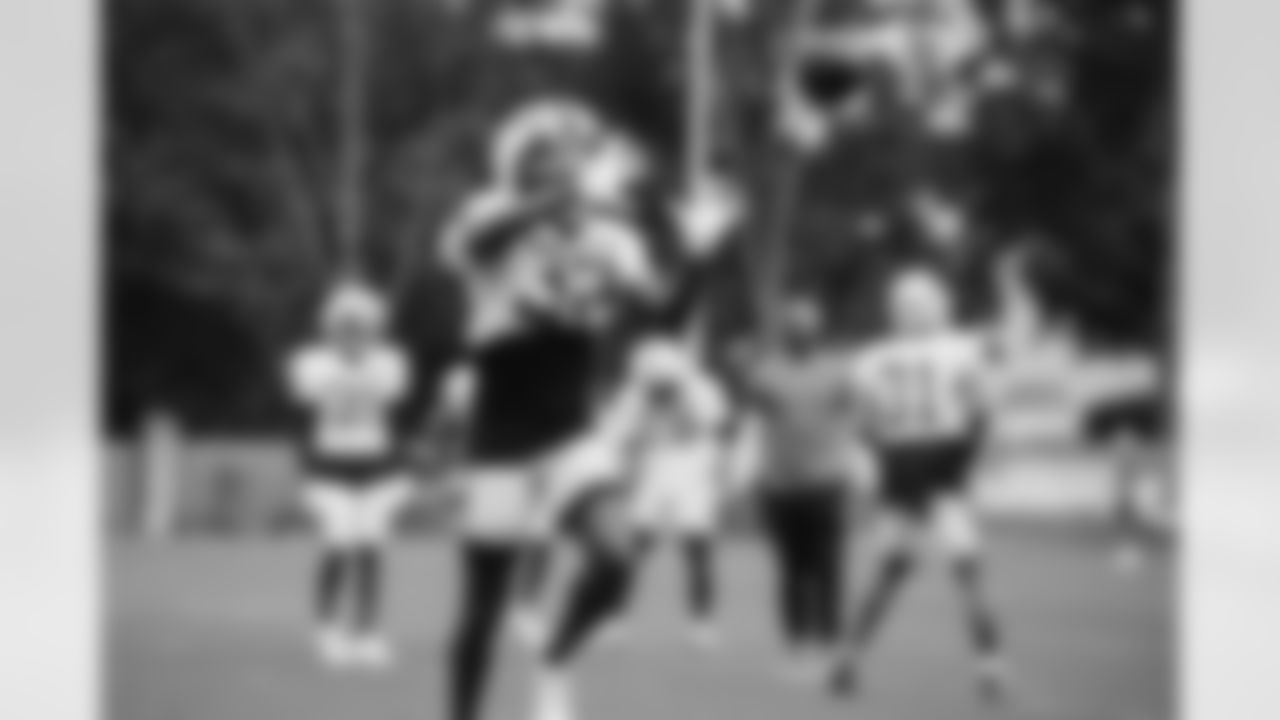

Jaycee Horn (8)
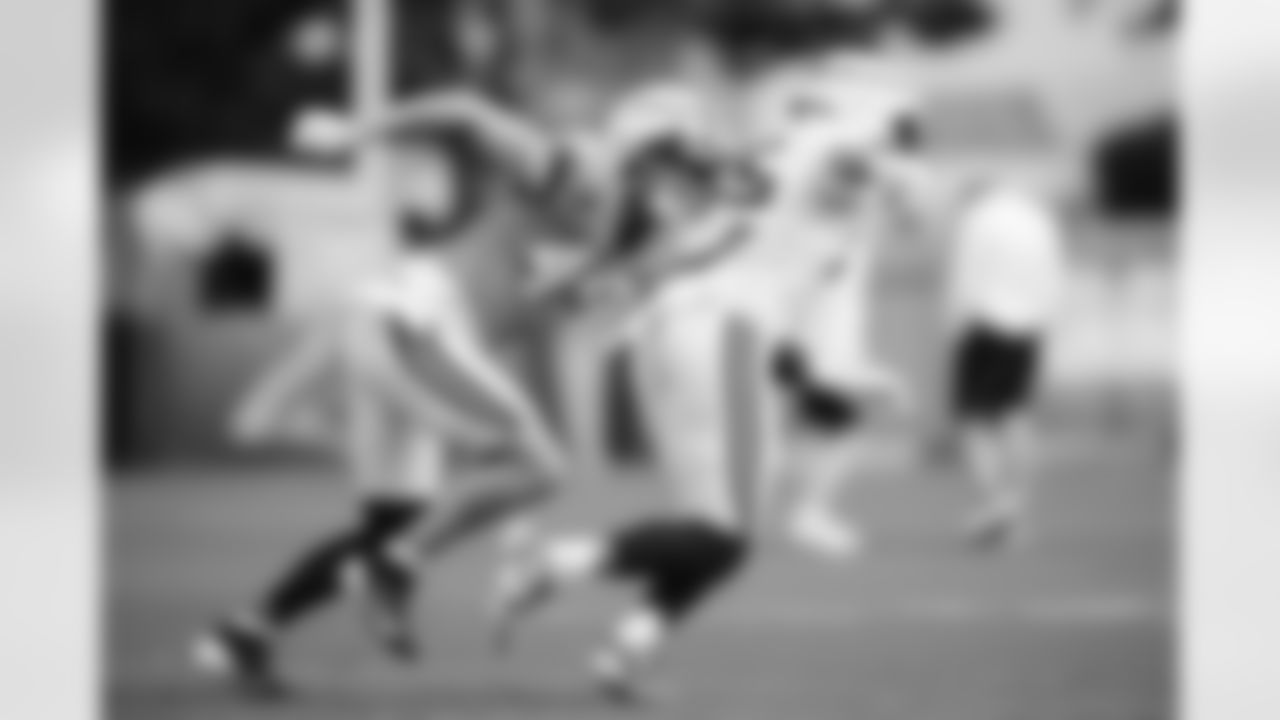
Feleipe Franks (49)
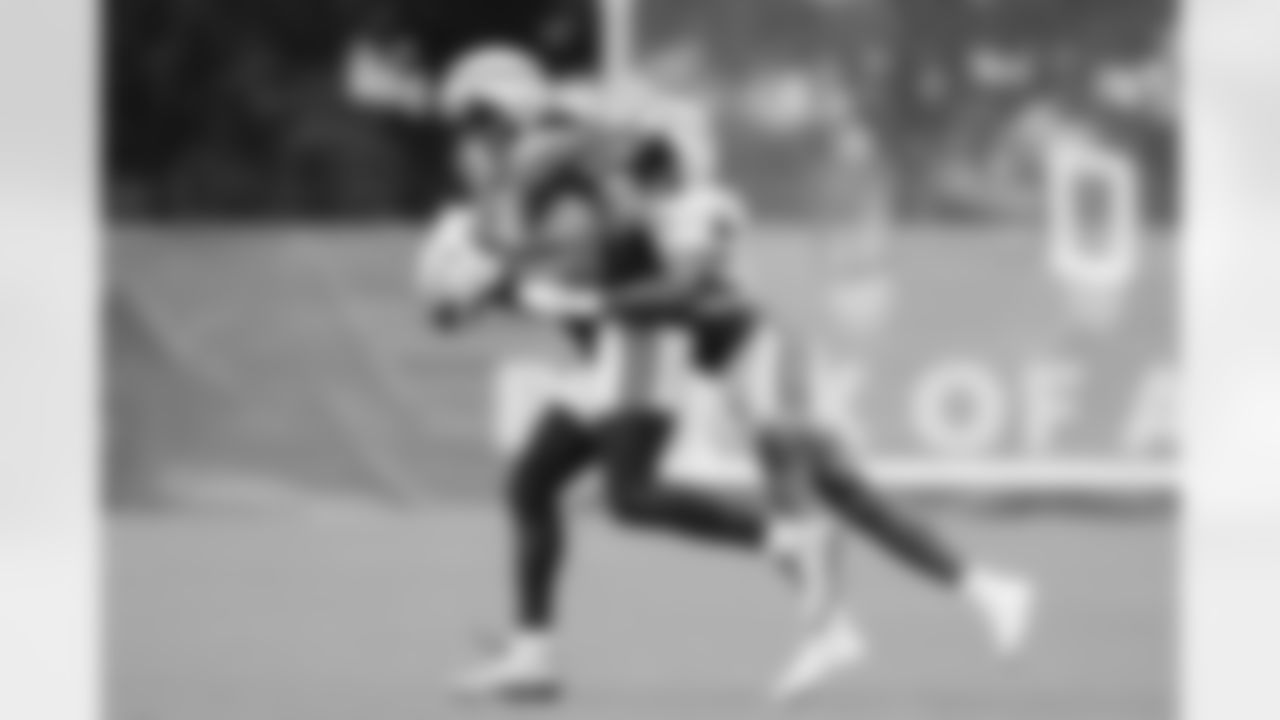
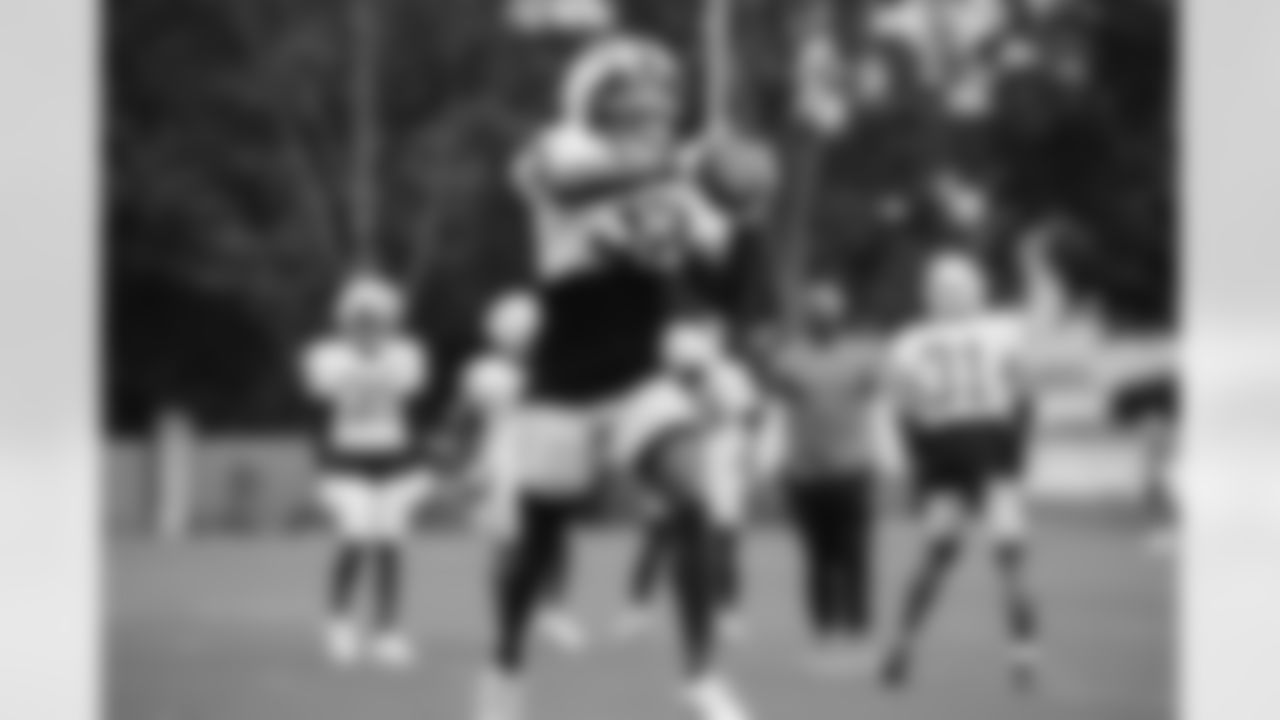
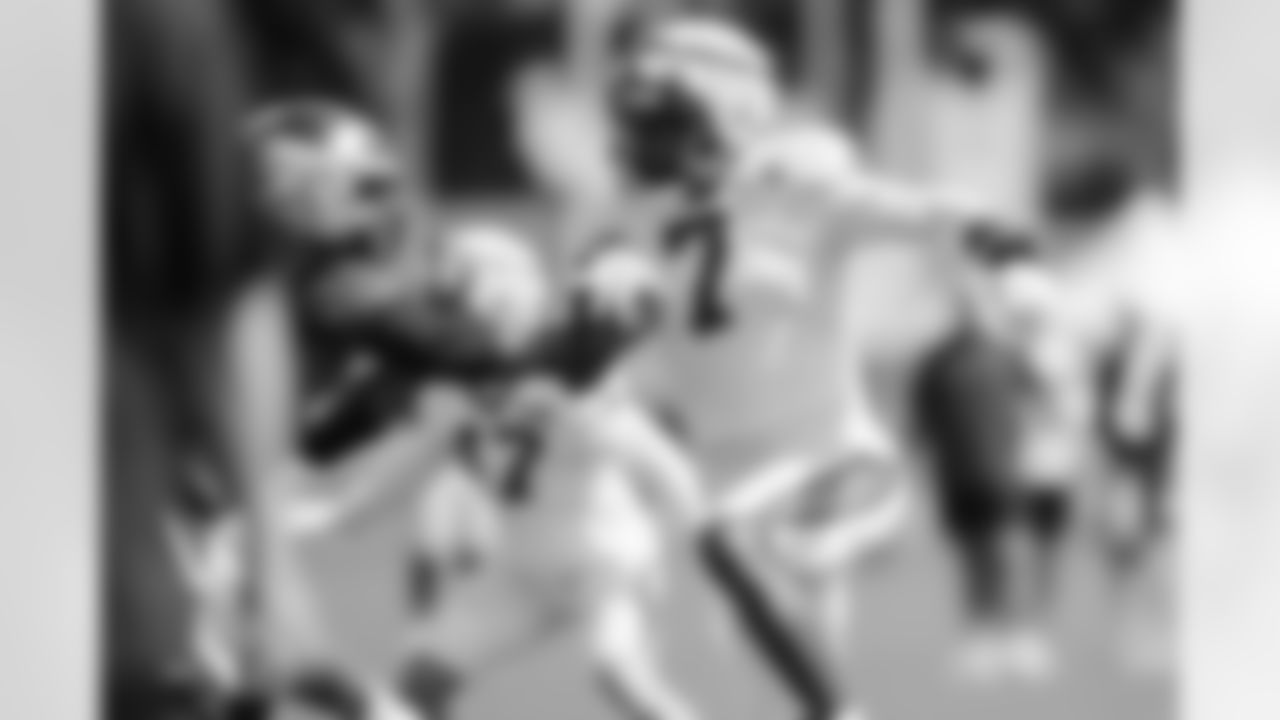
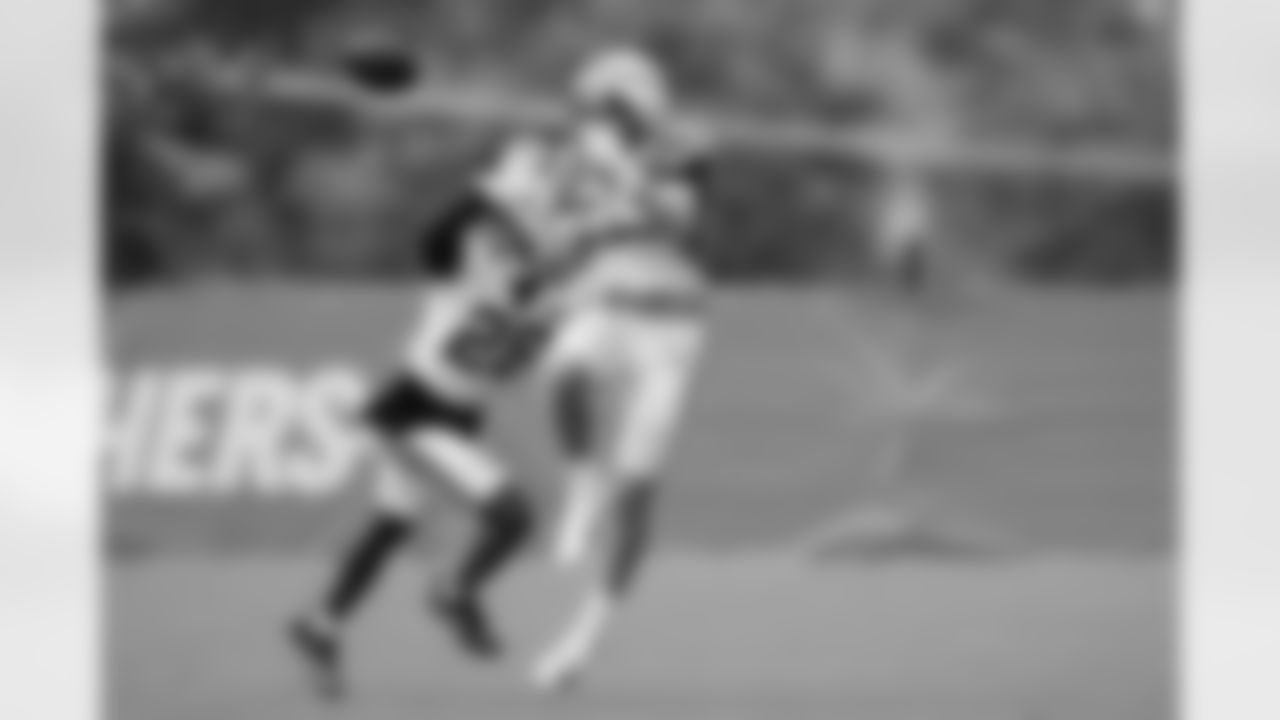
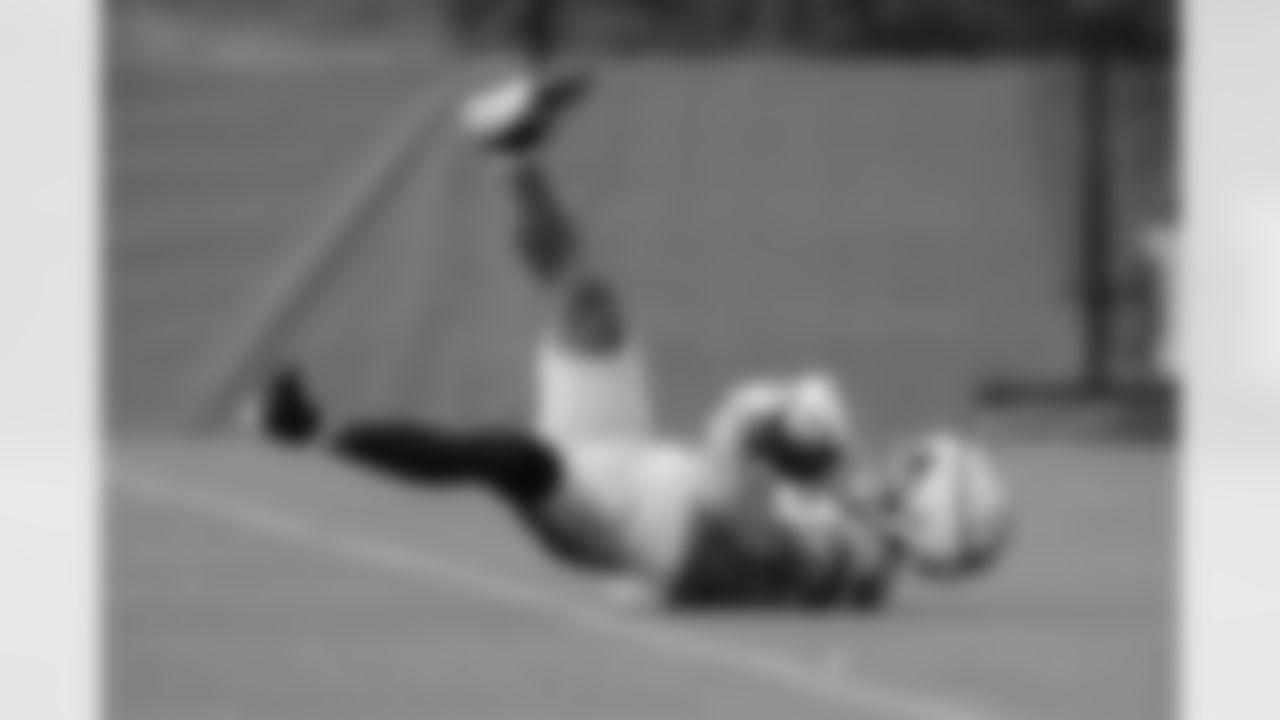
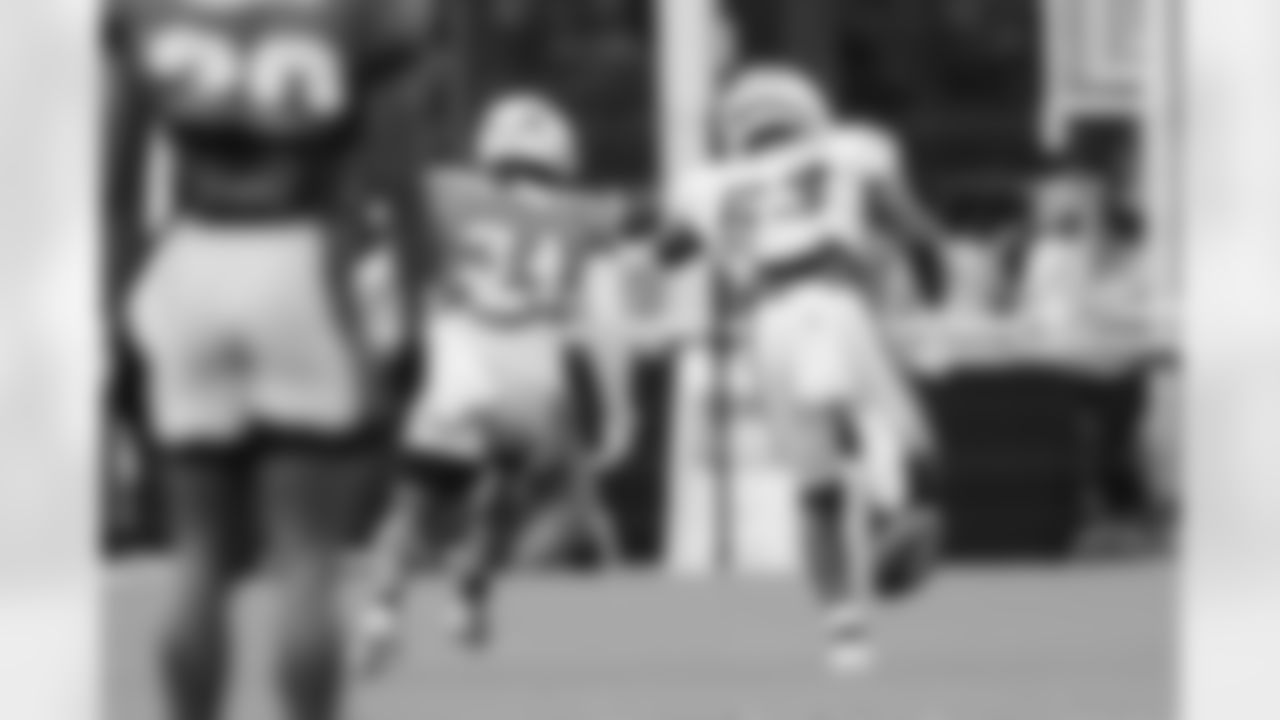
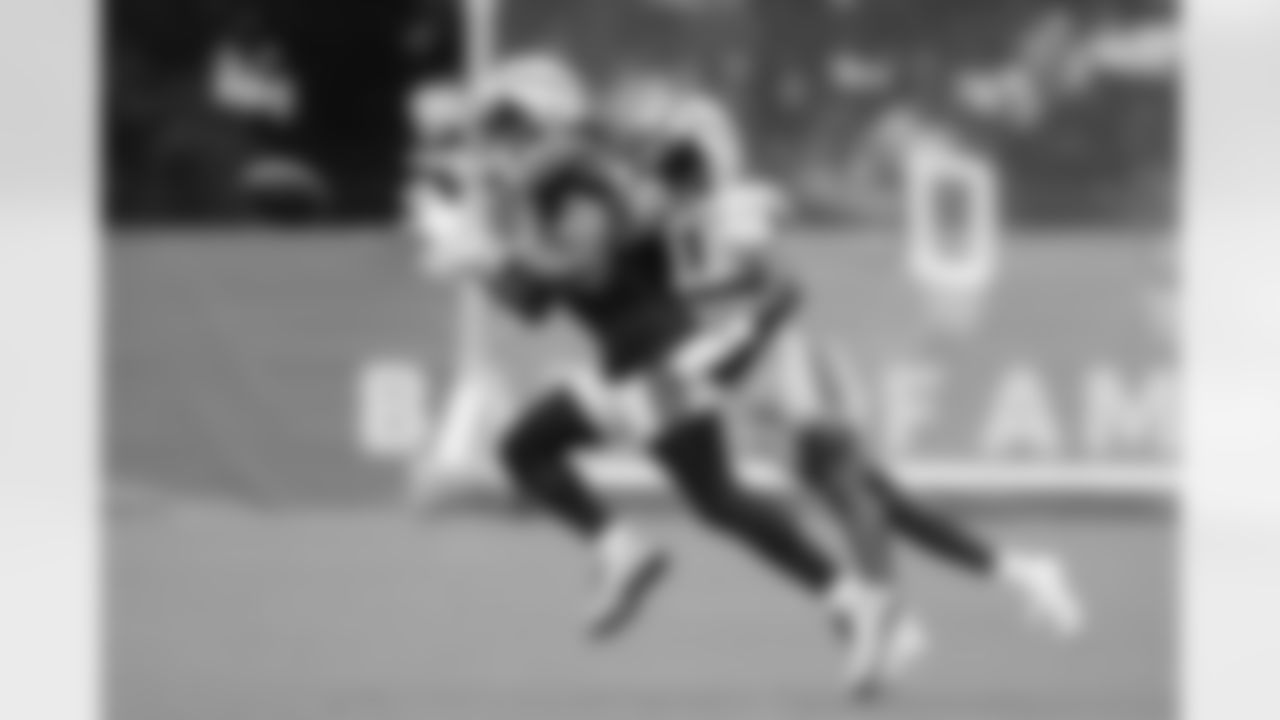
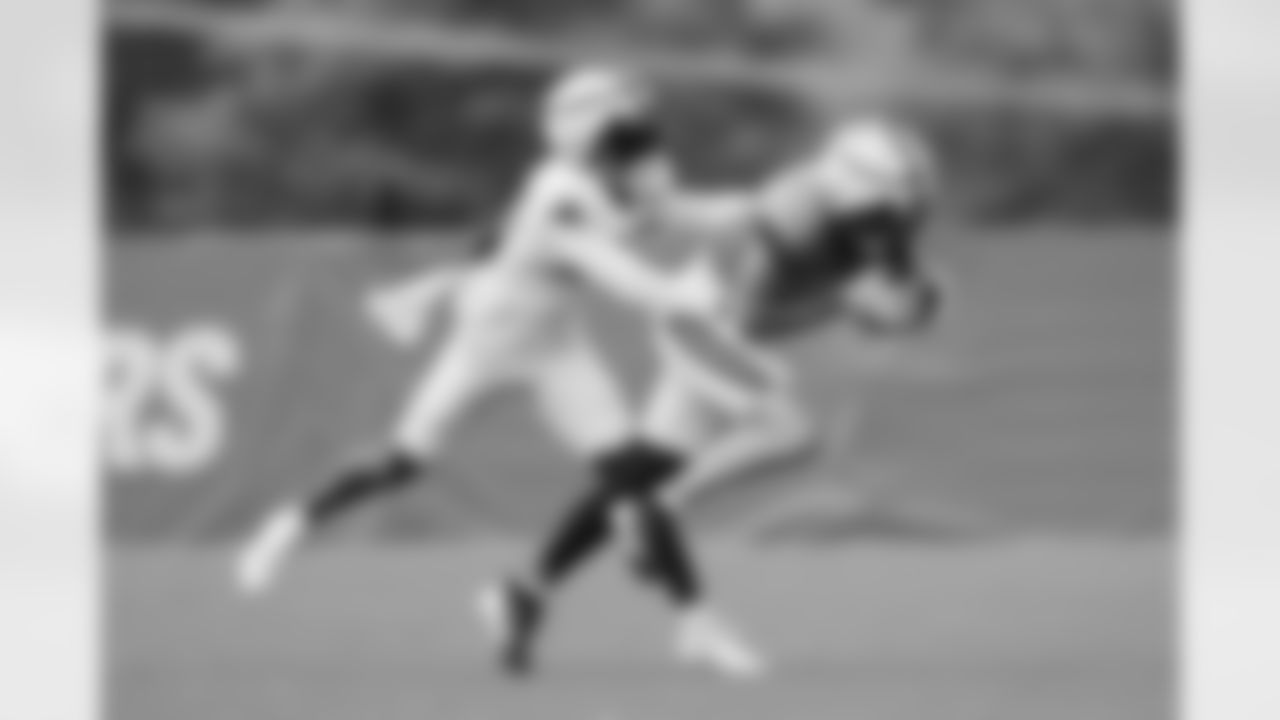
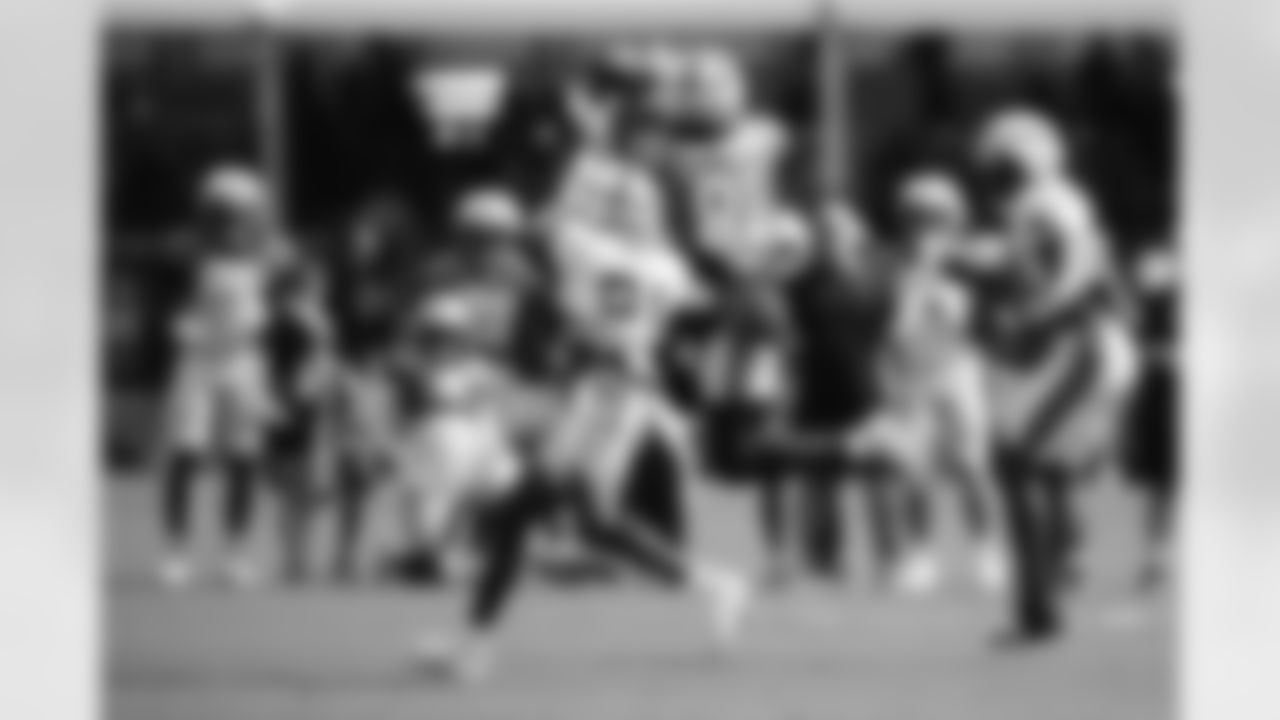
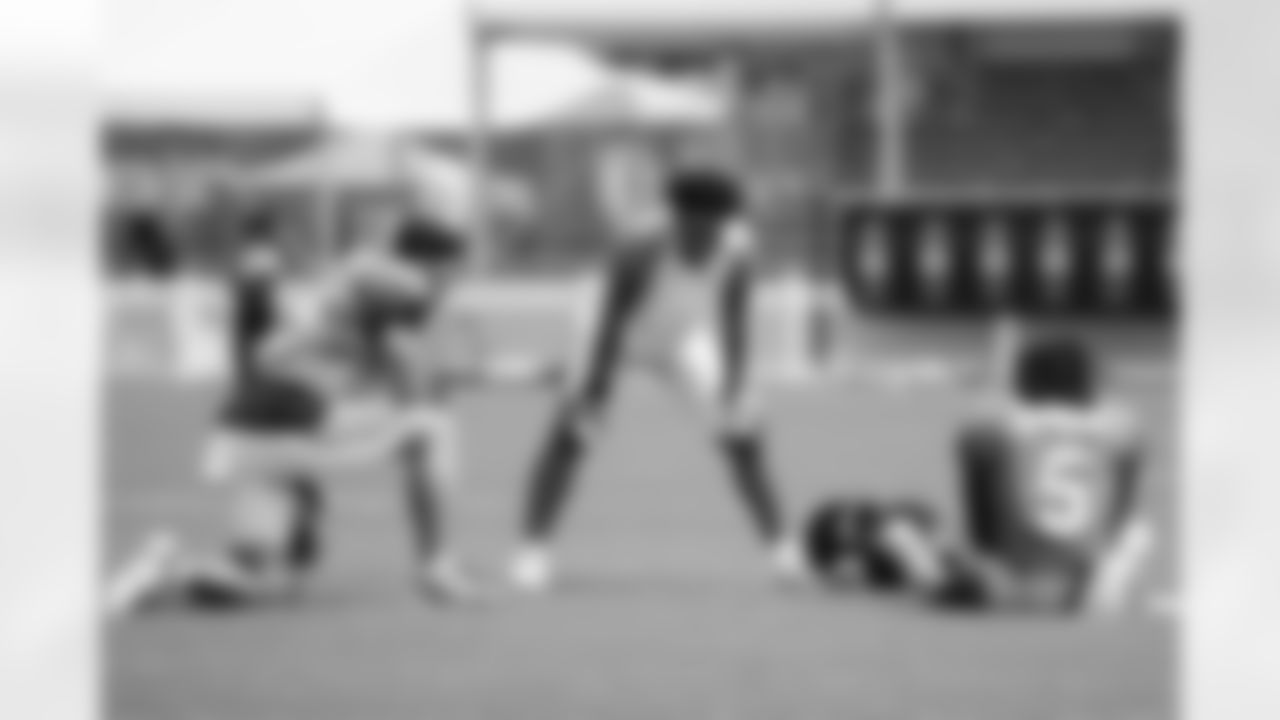
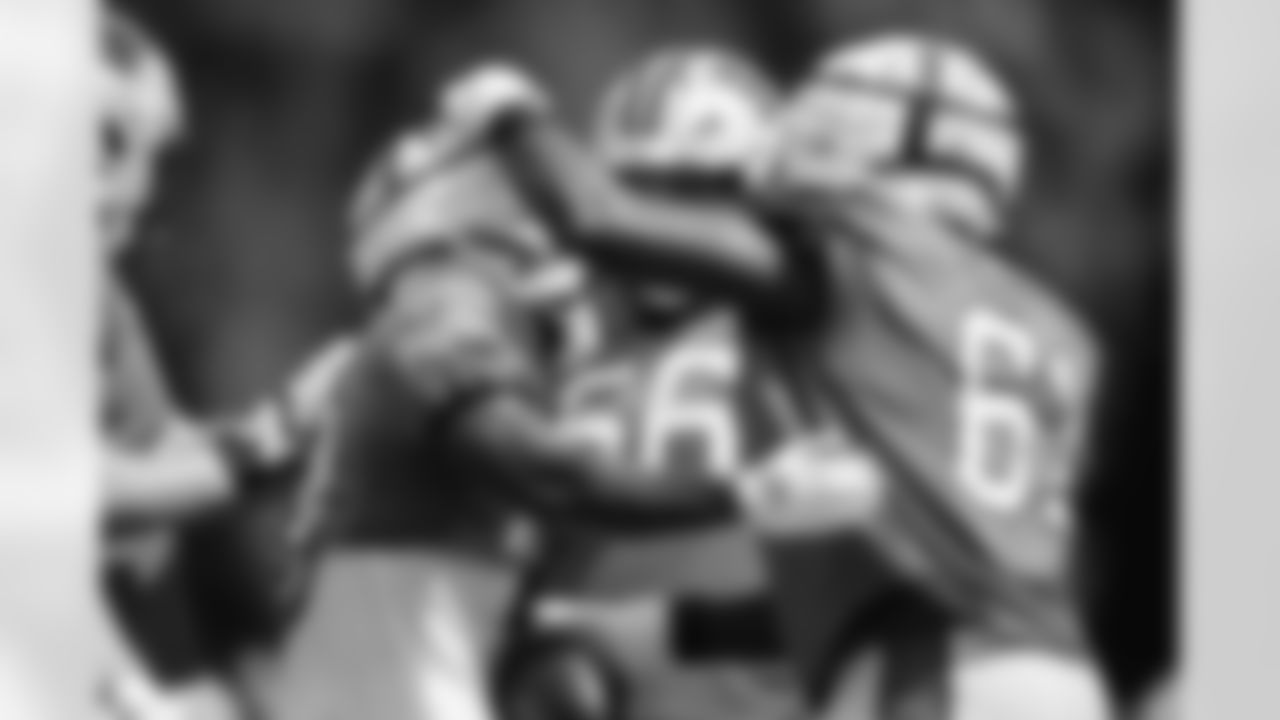
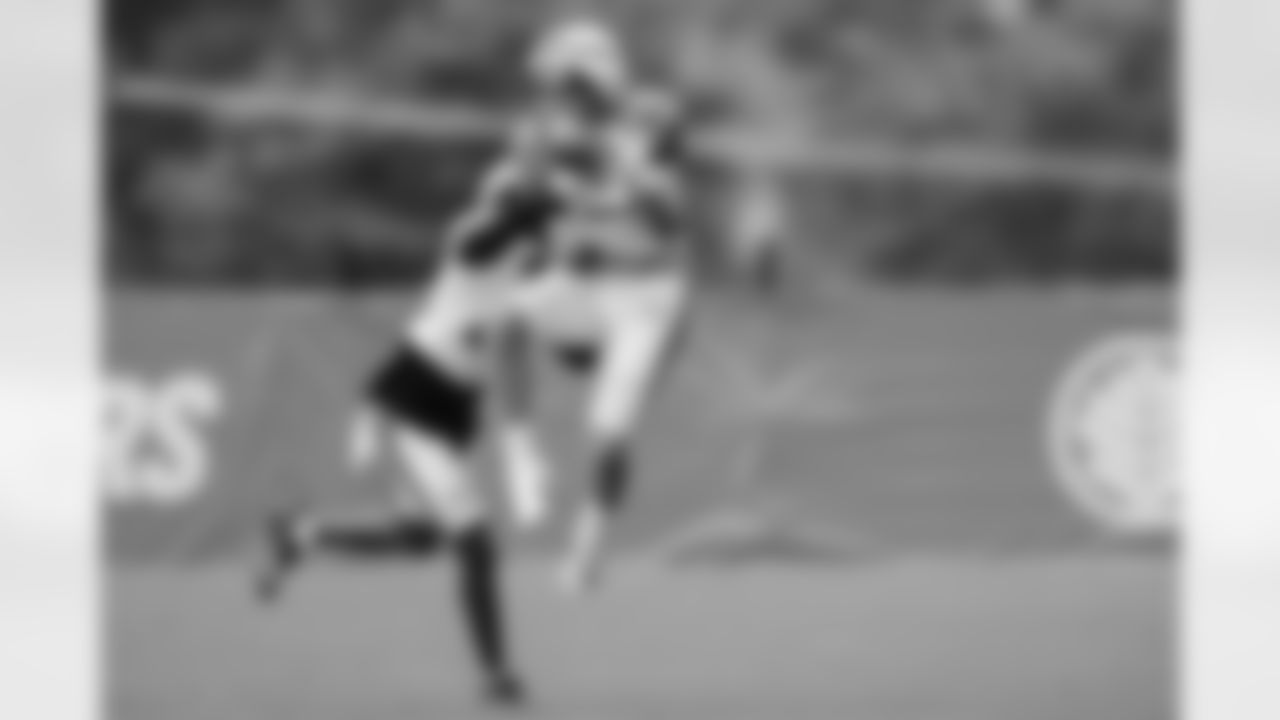
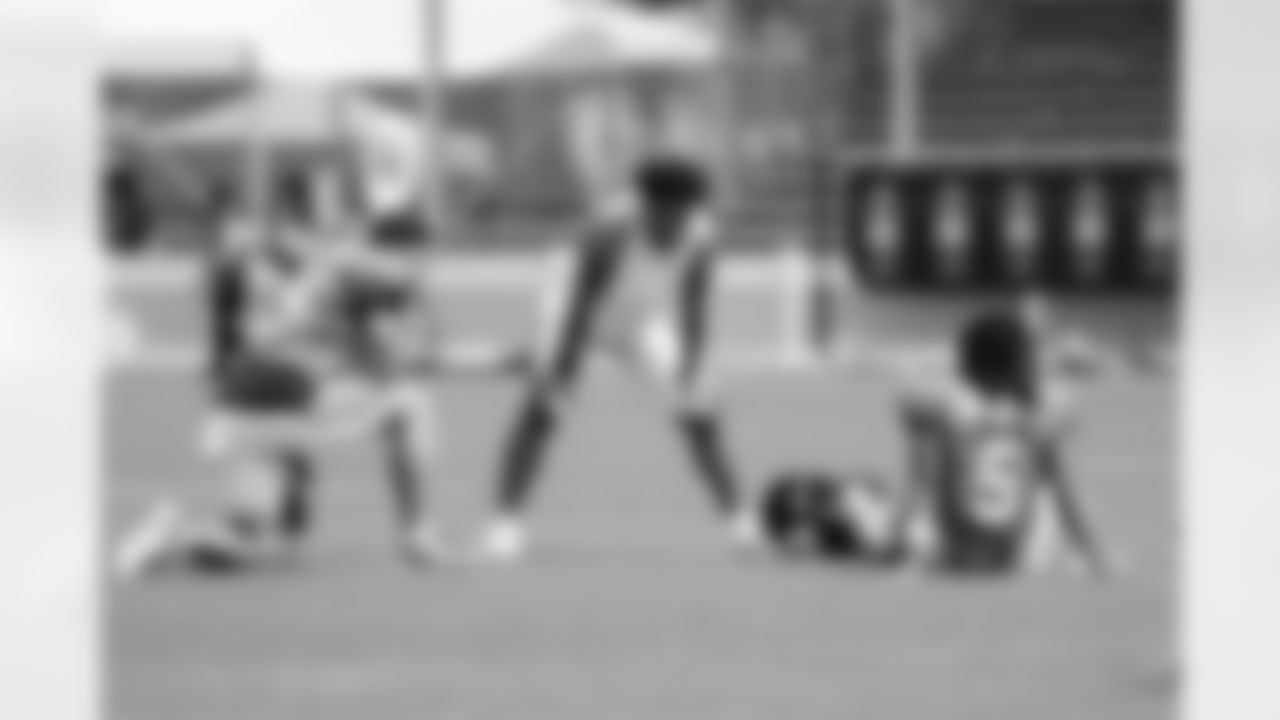

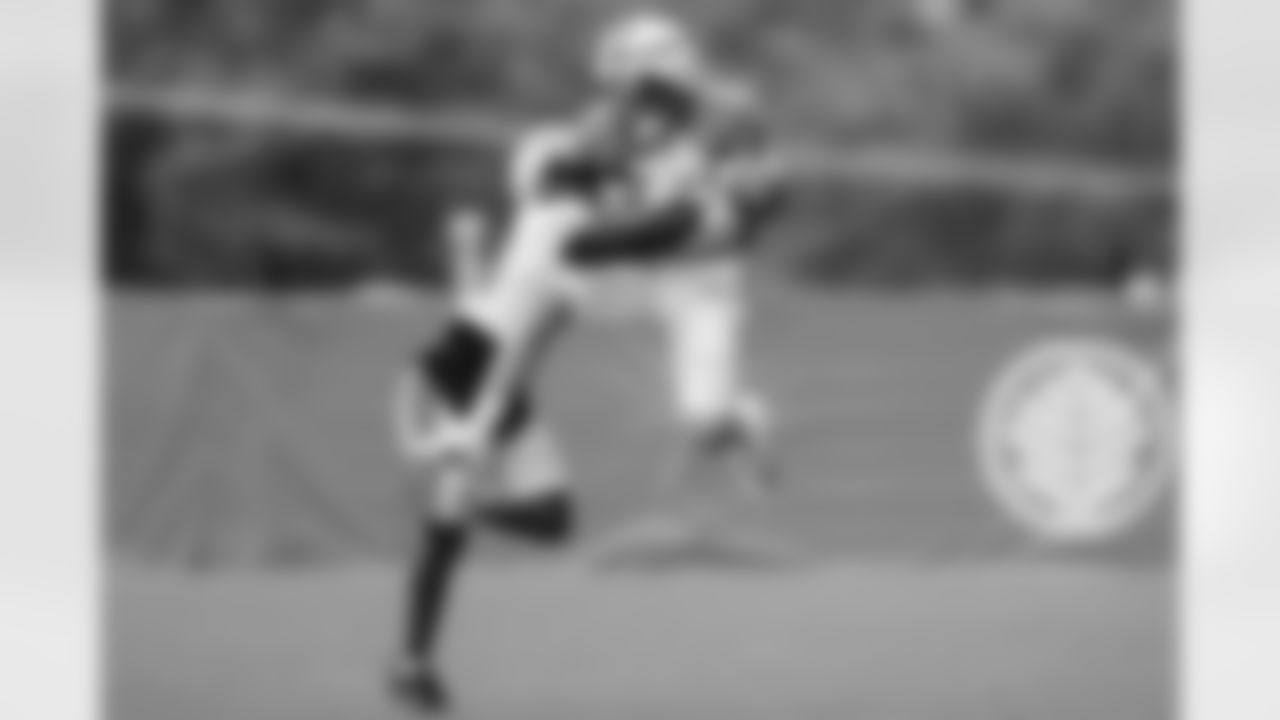
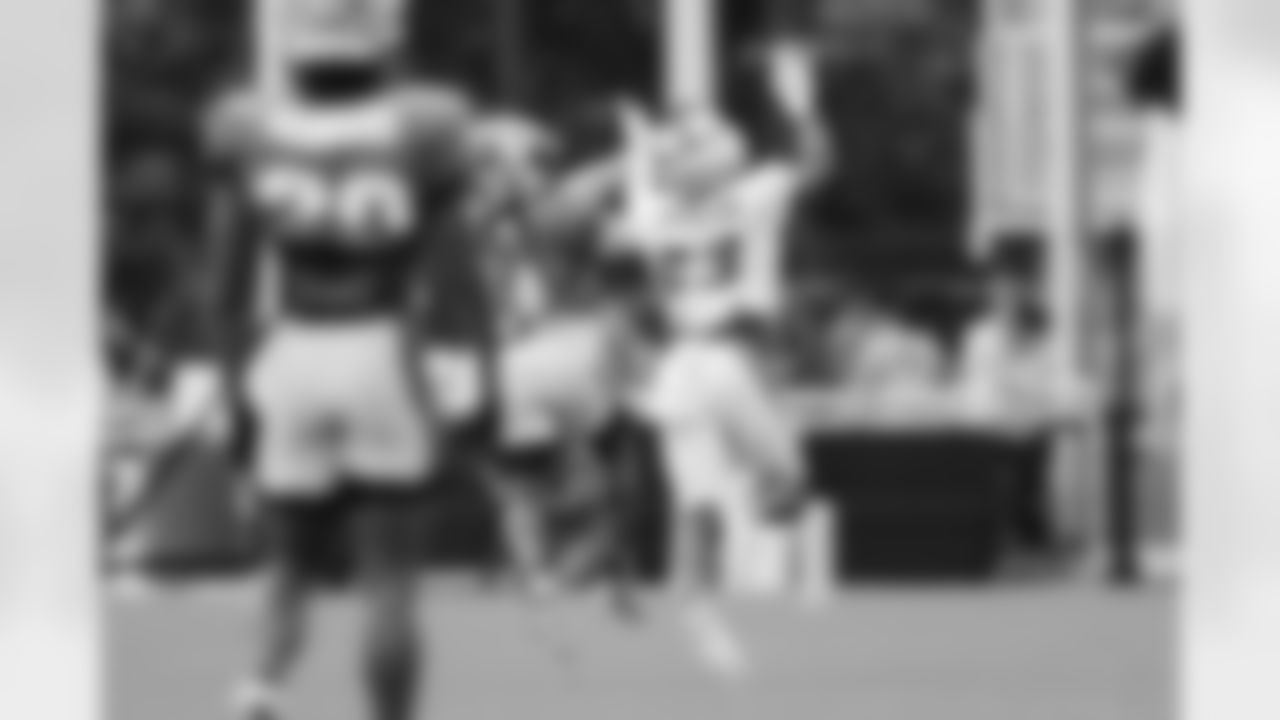
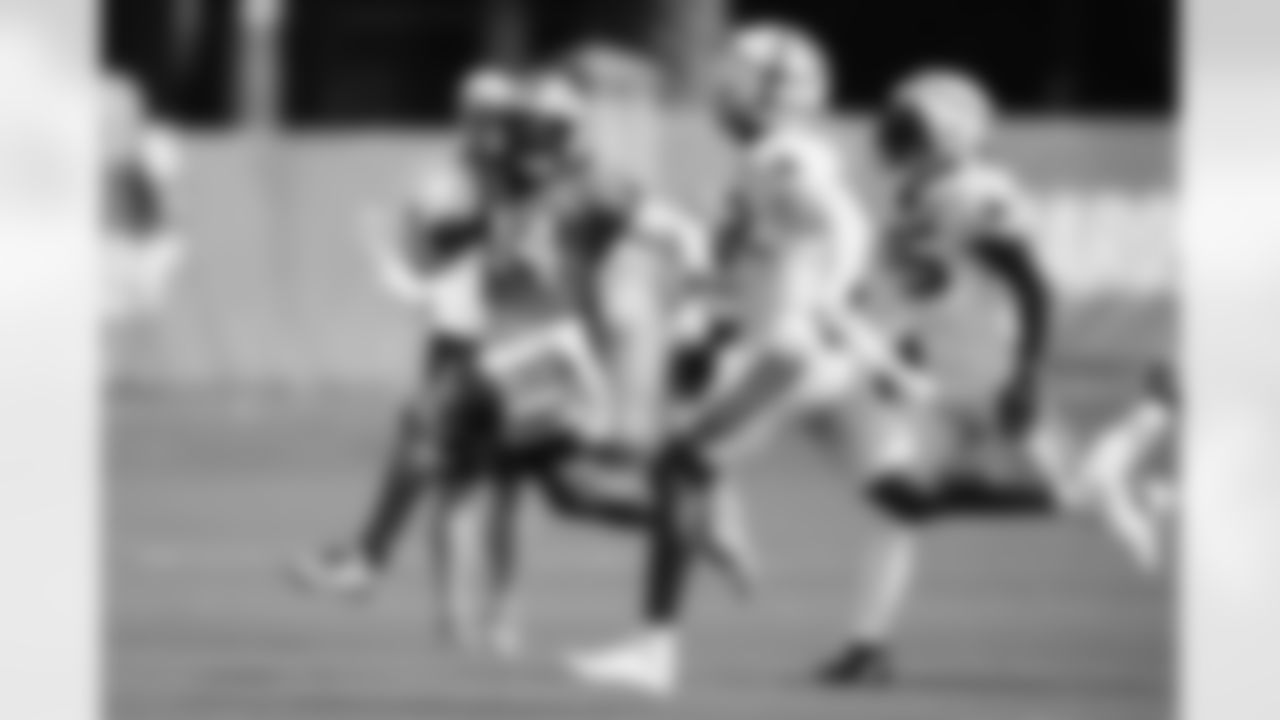
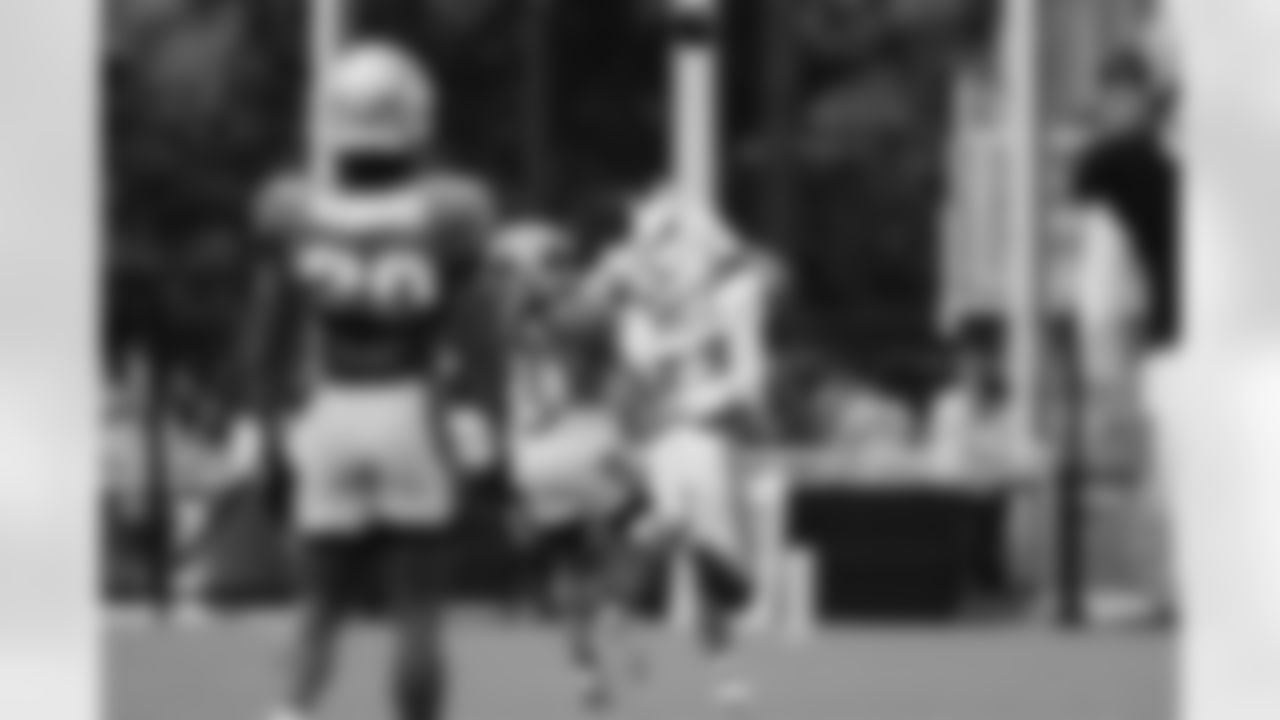

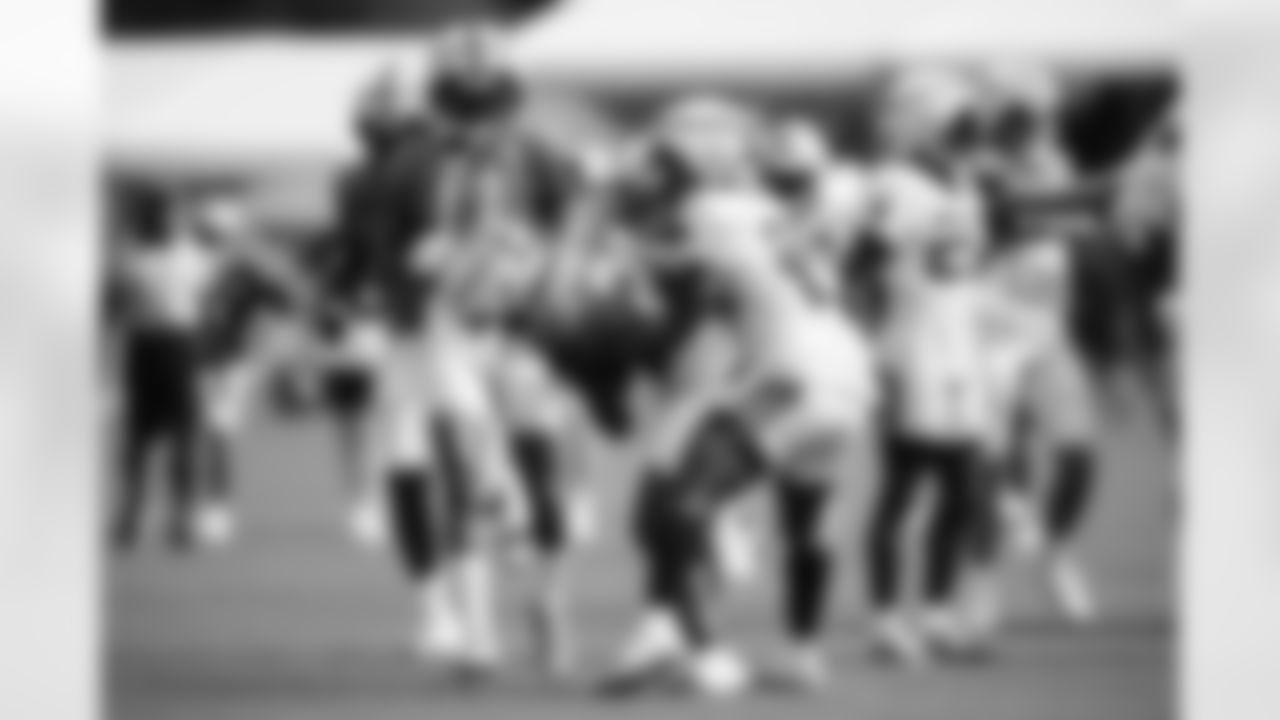
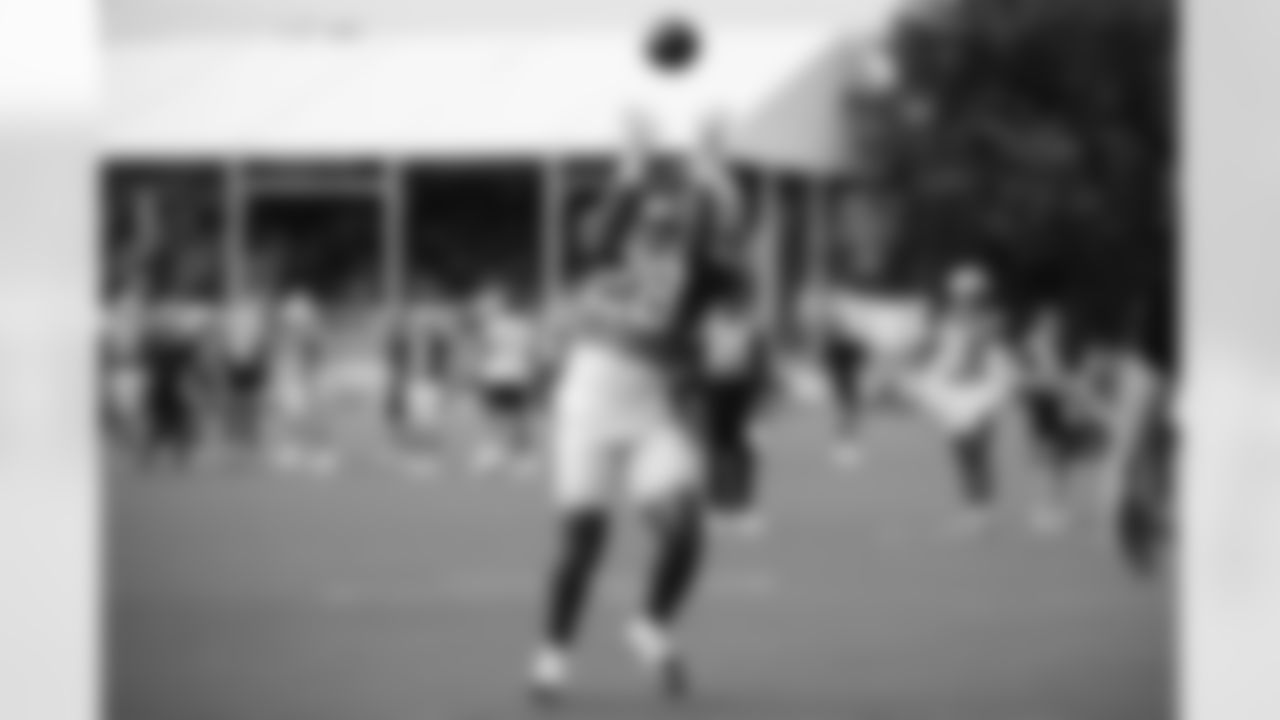

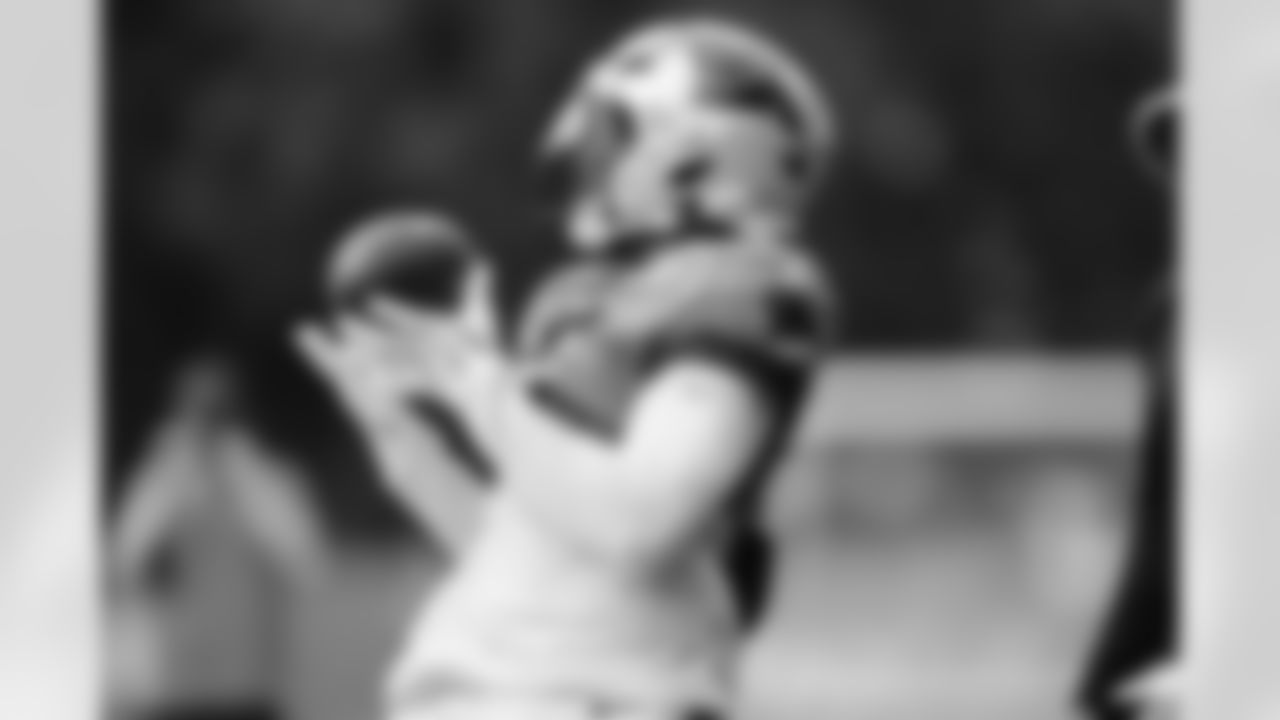
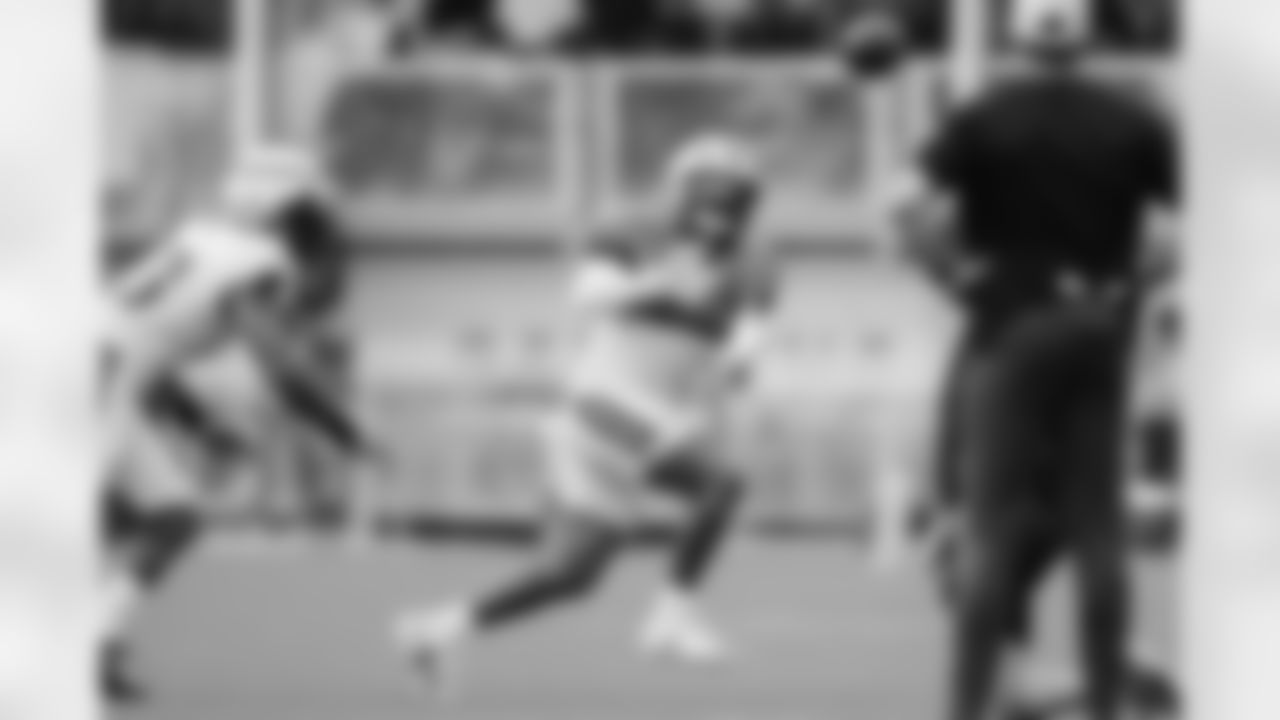

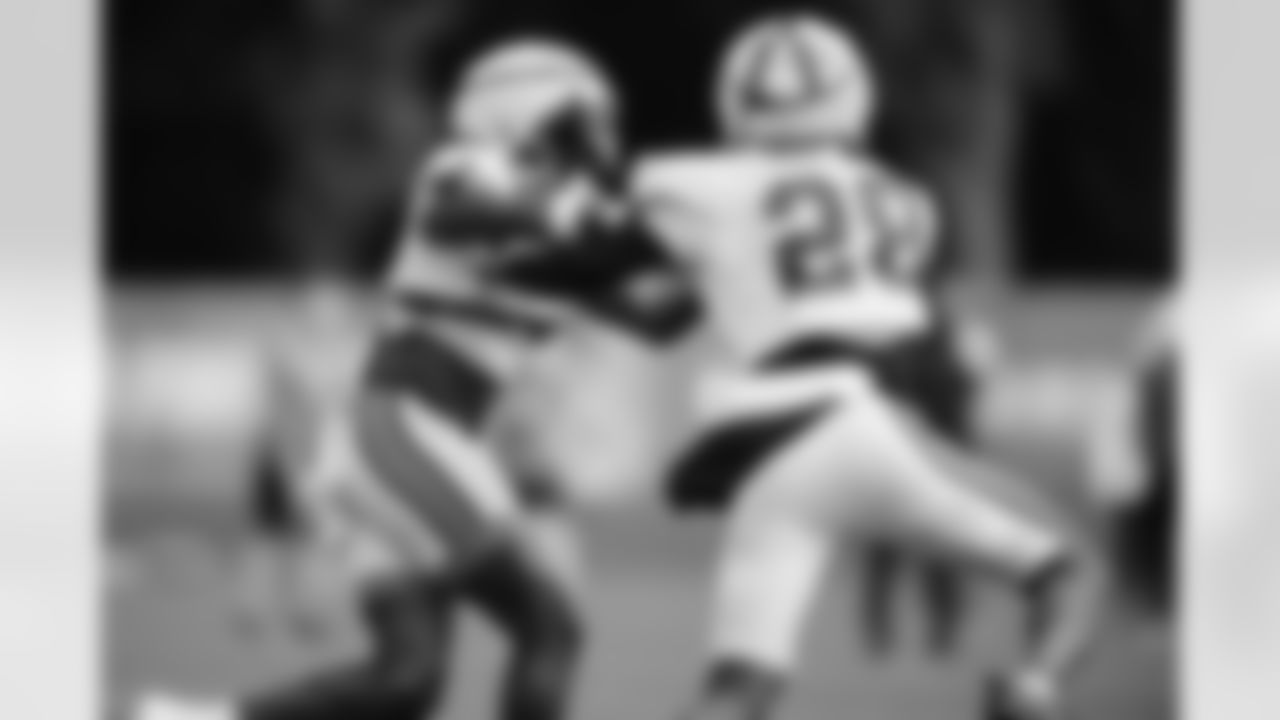
Nick Scott (21) Clayton Isbell (28)
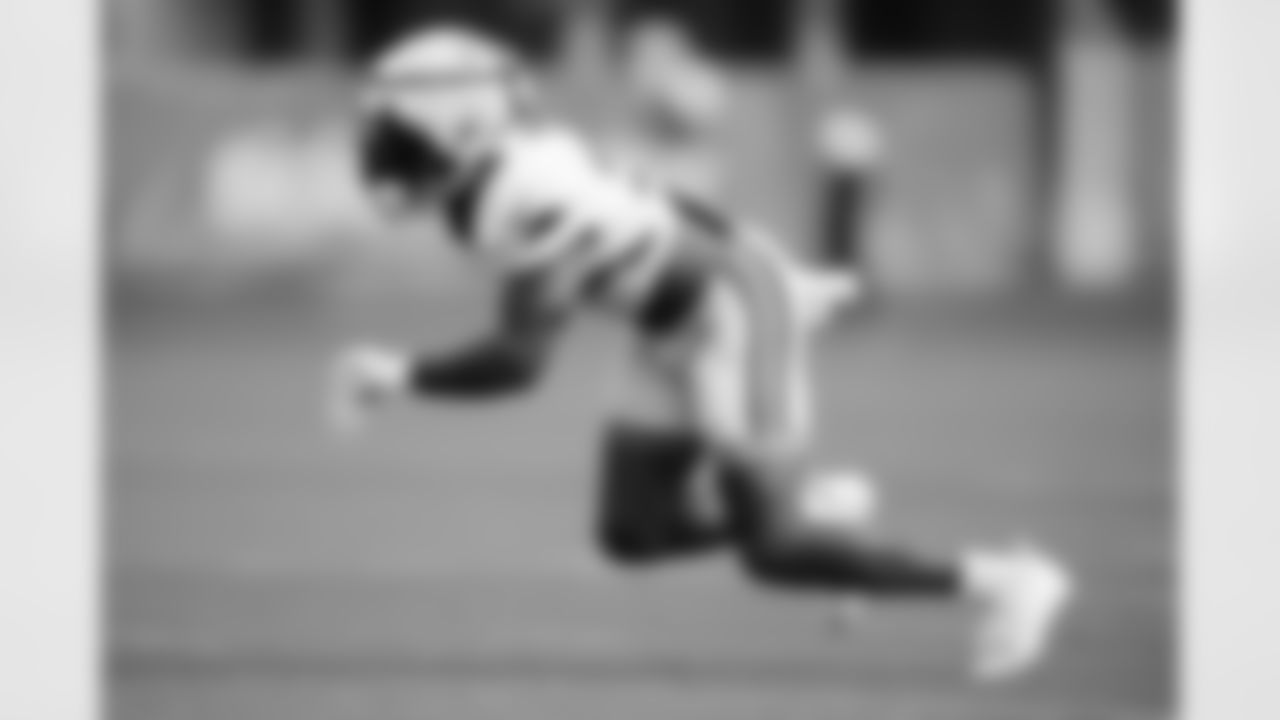
Nick Scott (21)
